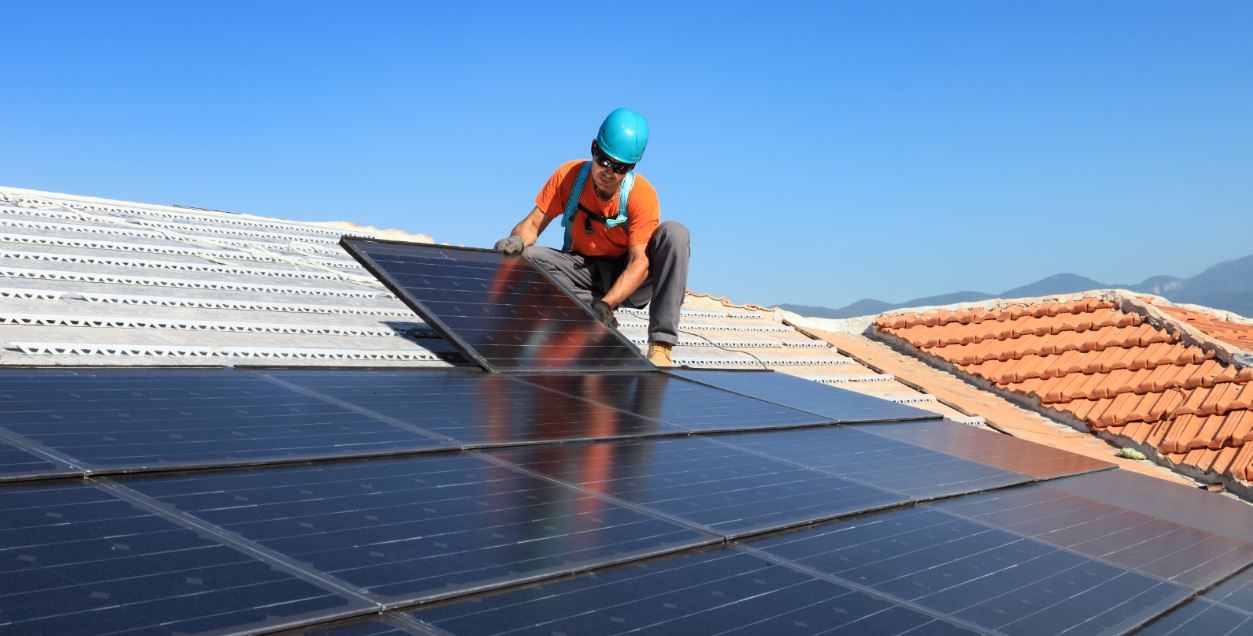How to Choose the Right Plumbing Service for Your Solar Panel Installation

As the world’s focus on renewable energy intensifies, more and more homeowners are turning to solar panels as a way of reducing their carbon footprint while also saving money. However, installing solar panels is not just about buying the equipment and sticking it on your roof – you need an experienced plumber who can ensure that everything is properly connected and functioning efficiently. With so many plumbing services out there claiming to be experts in solar panel installations, how do you choose the right one? In this blog post, we’ll share some tips to help you find a reliable and qualified plumbing service for your solar panel installation needs.
What is a Solar Panel?
When considering a plumbing service to install your solar panel system, it is important to understand the different types of solar panels and their respective needs.
There are two main types of solar panels: crystalline and thin film. Crystalline panels use a large number of small silicon crystals that convert sunlight into electricity. Thin film panels use a layer of light-sensitive material that is exposed to sunlight and converted into electrical energy.
Crystalline solar panels are usually more expensive than thin film solar panels, but they produce more electricity. They also require more space for installation because they generate more heat. Thin film solar panels are smaller, lighter, and less expensive than crystalline solar panels, but they produce less electricity. They also require less space for installation because they do not generate as much heat.
Types of Solar Panels
When you’re thinking about installing solar panels, it’s important to consider your needs and what kind of plumbing service will be best for your installation. Here are some types of solar panel plumbing services to consider:
1. Sewer Service: If you have a septic system, you’ll need to contact your sewage contractor to find out if they’re capable of handling the extra flow from your solar panels. Many municipalities offer subsidies for residential solar panel installations that include a sewer connection; check with your municipality to see if this is applicable to you.
2. Water Service: If you don’t have a septic system, or if your sewage contractor isn’t able to handle the increased flow from your solar panels, then you’ll need water service. There are two main ways to get this service: by connecting directly into an existing water line or by installing an on-site water tank. Both methods have their pros and cons, so it’s important to weigh them both against each other when making the decision.
3. Electric Service: If you’re not planning on using water or electricity from the grid, then you can install a standalone solar power system that uses its own electric supply. This option is available whether you have an existing electric line or not; just make sure that the voltage and amps ratings of your solar panels meet the requirements of your standalone power system.
How do Solar Panels Work?
In order for a solar panel to generate electricity, it needs direct sunlight. Solar panels can be attached to the roof of a home or business to collect this energy. When the sun is shining, the solar panels turn the sunlight into electricity.
There are different types of solar panels and each has its own advantages and disadvantages. The most common type of solar panel is the monocrystalline silicon panel. Monocrystalline silicon panels are cheaper than other types of solar panels and they work well in both direct and indirect sunlight. They have some limitations, however, including their inability to work in very bright sunlight and their susceptibility to weathering and degradation over time.
The second most common type of solar panel is the polycrystalline silicon panel. Polycrystalline silicon panels are more expensive than monocrystalline silicon panels but they have a number of advantages including their ability to work in more light than monocrystalline silicon panels and their resistance to weathering and degradation. They also have some limitations, including their low efficiency when used in direct sunlight and their susceptibility to damage from windblown snow or rain.
The third most common type of solar panel is the thin-film photovoltaic (TF PV) panel. TF PV panels are made up of many small cells that convert light into electrical power directly without having to pass through a inverter first like traditional solar panels do. This makes TF PV panels more efficient than traditional solar panels but
Choosing the Right Plumbing Service for Your Solar Panel Installation
When installing solar panels, it is important to choose a plumbing service that is experienced in working with solar panels. There are a few things to consider when choosing a plumbing service:
-Are they experienced with solar panels?
-Do they have the equipment necessary to install solar panels?
-Can they provide warranties on their work?
It is also important to ensure that the plumbing service you choose has a good reputation. Checking reviews online can help you make an informed decision.
Conclusion
If you are planning to install solar panels, it’s important to choose the right plumbing service. Not only will they be able to help with the installation process, but they will also be responsible for any repairs or maintenance that may need to be done in the future. When choosing a plumbing service, make sure to ask about their experience installing solar panels and whether they have any recommendations for other services that might be needed during the installation process.
